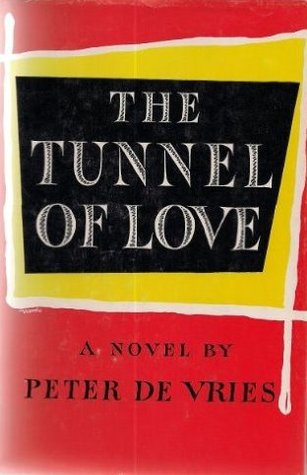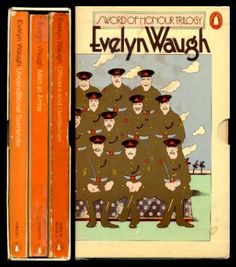 Rereadings: Seventeen Writers Revisit Books They Love, edited by Anne Fadiman, is a little-known classic. When I first read this charming collection of essays, I was inspired by Evelyn Toynton’s “Revisiting Brideshead” to reread Evelyn Waugh’s Brideshead Revisited. The first time I’d read it, I was teaching at a lovely snob school, and so steeped in classics that Brideshead did not measure up. When I reread it in 2005, I admired the exquisite style and the witty dialogue. Toynton, on the other hand, disliked it.
Rereadings: Seventeen Writers Revisit Books They Love, edited by Anne Fadiman, is a little-known classic. When I first read this charming collection of essays, I was inspired by Evelyn Toynton’s “Revisiting Brideshead” to reread Evelyn Waugh’s Brideshead Revisited. The first time I’d read it, I was teaching at a lovely snob school, and so steeped in classics that Brideshead did not measure up. When I reread it in 2005, I admired the exquisite style and the witty dialogue. Toynton, on the other hand, disliked it.
In Waugh’s great Catholic novel, Brideshead Revisited, published in 1946, the narrator Charles Ryder remembers a romantic pre-war past. At Oxford he was befriended by the Catholic aristocrat Sebastian Flyte; later he falls in love with Sebastian’s sister Julia. At Oxford, the charming Sebastian carries his teddy bear, Aloysius, everywhere. I regret to say that no one I knew ever carried a teddy bear, but then I didn’t know any English aristocrats.
 The essays follow a pattern of discovery and reassessment, and quite often the book turns out to be different from the writer’s memory of it. In my favorite essay, “Love with a Capital L,” Vivian Gornick revisits Colette’s The Vagabond and The Shackle, its sequel. And what she loved in her twenties is not what she loves now.
The essays follow a pattern of discovery and reassessment, and quite often the book turns out to be different from the writer’s memory of it. In my favorite essay, “Love with a Capital L,” Vivian Gornick revisits Colette’s The Vagabond and The Shackle, its sequel. And what she loved in her twenties is not what she loves now.
Gornick writes,
When I was in my twenties, my friends and I read Colette as others read the Bible. She was our Book of Wisdom. We read her for solace, and for moral instruction. We read her to learn better who we were, and how, given the constraint of our condition, we were to live.
 Gornikc found the experience of rereading Colette “unsettling.” She writes, “The wholly unexpected occurred: I came away from them with mixed feelings.” She loved the lyricism but was surprised by the emptiness of the narrator Renee, whose life revolves around love. Although The Vagabond is my favorite of Colette’s books, I know what she means. In The Vagabond, Renee rejects a charming lover who isn’t quite as intelligent as she: she feels it wouldn’t work. But in The Shackle she falls for a man who has beaten his previous girlfriend. Why? What happened to Renee that she would find him attractive?
Gornikc found the experience of rereading Colette “unsettling.” She writes, “The wholly unexpected occurred: I came away from them with mixed feelings.” She loved the lyricism but was surprised by the emptiness of the narrator Renee, whose life revolves around love. Although The Vagabond is my favorite of Colette’s books, I know what she means. In The Vagabond, Renee rejects a charming lover who isn’t quite as intelligent as she: she feels it wouldn’t work. But in The Shackle she falls for a man who has beaten his previous girlfriend. Why? What happened to Renee that she would find him attractive?
Most of the essays in the collection are elegant and insightful, though I am not interested in David Micahelis’s revisiting of Sgt. Pepper’s Lonely Hearts Band (and anyway wasn’t that cheating?). Pico Iyer writes brilliantly about D. H. Lawrence’s The Virgin and the Gipsy, which he read at an English boarding school and admired upon rereading. I reread the novella in 2016 and wrote here: “Think Lady Chatterley’s Lover, only sillier.”
In Rereadings, Patricia Hampl writes perceptively on Katherine Mansfield, Jamie James on Joseph Conrad, Philip Lopate on The Charterhouse of Parma, David Samuels on J. D. Salinger, and more. A very entertaining book. I want to read more on rereadings.












